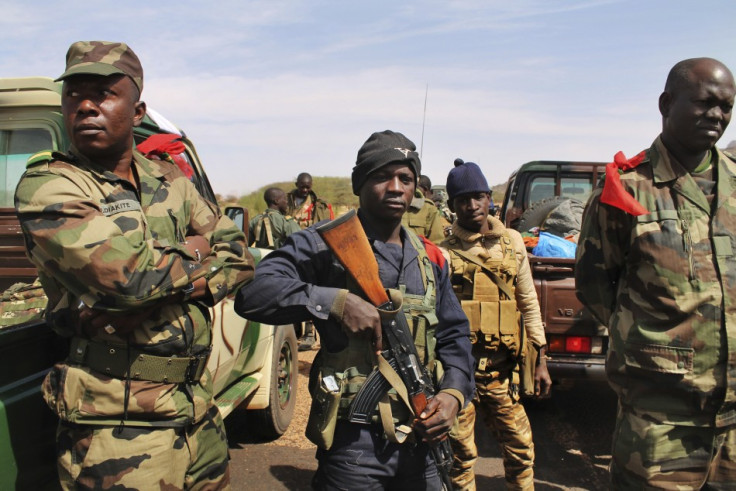Mali: Suicide Bombers and Internal Army Feuds Mark New Stage of Conflict

The conflict in Mali has abruptly moved into its second stage amid suicide bomb attacks and internal fights within the ill-disciplined national army.
In the first suicide attack ever recorded in Mali, a bomber blew himself up in the northern town of Gao.
Riding a motorbike, the attacker detonated an explosive belt as he careered into a group of soldiers, injuring one, a Malian official told AFP.
Islamist militants have fled into mountainous and desert refuges in northern Mali, after French-led forces regained control over the main towns in the region.
The vast and hard-to-reach desert region straddling the Algerian border is a perfect natural hideaway for the rebels to start a long guerrilla war.
Meanwhile in the capital Bamako, the ill-discipline and internal feuding within the Malian army that almost brought the state to collapse last spring re-erupted violently.
Soldiers from a unit allied with the leader of the military coup last March, which toppled president Amadou Toumani Touré, exchanged fire with the Red Beret presidential guard within hours of the suicide attack in Gao.
At least one person was killed and five wounded in the gunfight, according to witnesses.
"Since 6 am, the soldiers arrived in armoured cars and pickup trucks, all of them armed to the teeth to attack our base. The women and children tried to stop them from entering the camp. They shot tear gas at us and started shooting volleys in the air," said Batoma Dicko, a woman who lives in the military camp which also houses soldiers' families.
"A young man in his 20s was hit by a bullet in the head and he died on the spot. The bullet pierced his face through his right cheekbone, and came out through his neck. He was totally disfigured. There are also two women who were wounded, and three children, aged 11, 17 and around 15 years old," added Dr. Amadou Diallo, who works as an infirmary in the camp.
The Red Berets are perceived to still be loyal to toppled president Touré, and many have been arrested or sidelined after the March coup.
Touré was forcibly removed by Capt Amadou Haya Sanogo, who accused the president of not taking effective action against Tuareg secular rebels in the north.
After the coup, the Tuareg rebellion was hijacked by Islamist extremists who rapidly advanced southwards and threatened Bamako, abetted by the chaos within the military.
The advance was stopped by French intervention in January.
Mali: Is France's Operation Serval Anti-Terrorism or Pro-Business?
© Copyright IBTimes 2025. All rights reserved.






















